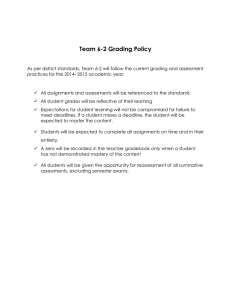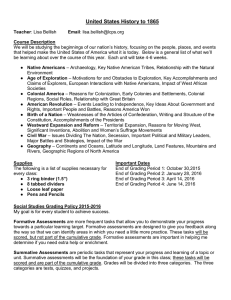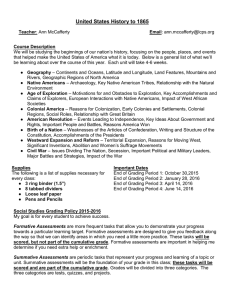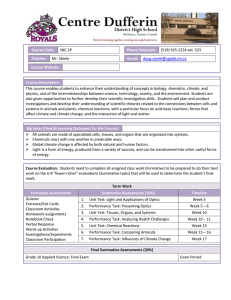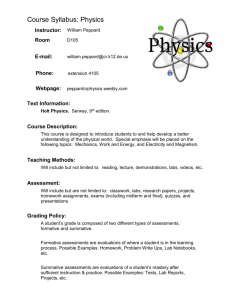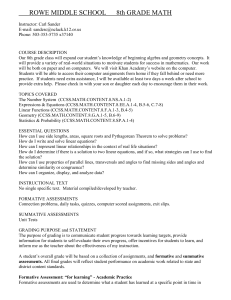In this class, students will gain an understanding of life... Also, students will be prepared to further their education in... Objective
advertisement
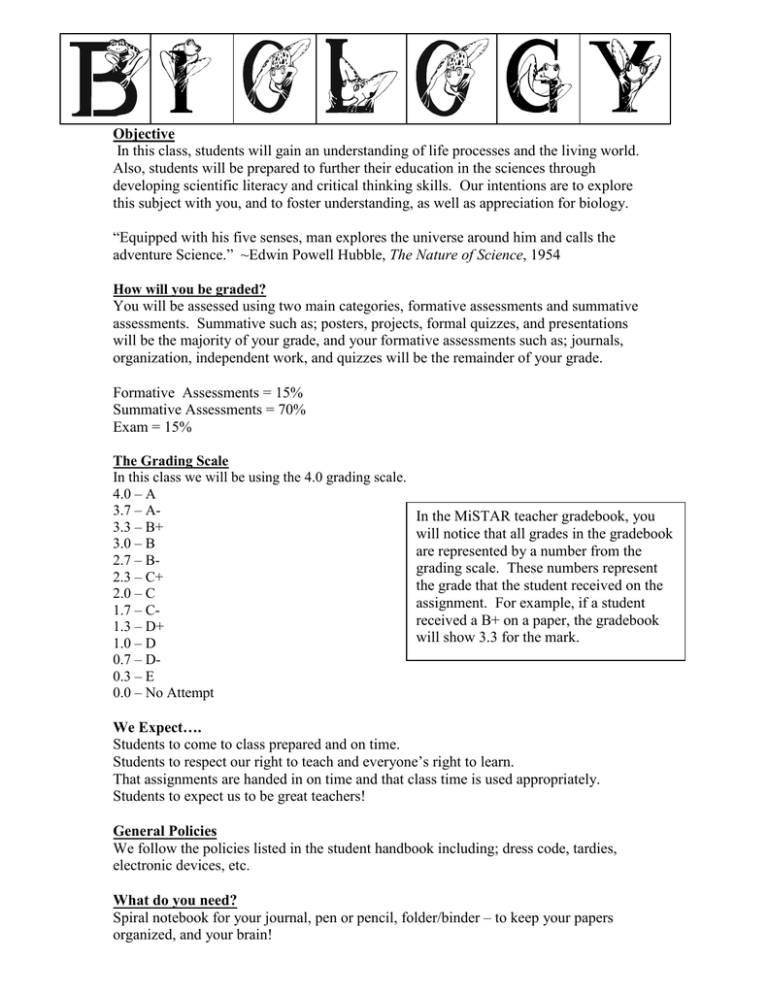
Objective In this class, students will gain an understanding of life processes and the living world. Also, students will be prepared to further their education in the sciences through developing scientific literacy and critical thinking skills. Our intentions are to explore this subject with you, and to foster understanding, as well as appreciation for biology. “Equipped with his five senses, man explores the universe around him and calls the adventure Science.” ~Edwin Powell Hubble, The Nature of Science, 1954 How will you be graded? You will be assessed using two main categories, formative assessments and summative assessments. Summative such as; posters, projects, formal quizzes, and presentations will be the majority of your grade, and your formative assessments such as; journals, organization, independent work, and quizzes will be the remainder of your grade. Formative Assessments = 15% Summative Assessments = 70% Exam = 15% The Grading Scale In this class we will be using the 4.0 grading scale. 4.0 – A 3.7 – A3.3 – B+ 3.0 – B 2.7 – B2.3 – C+ 2.0 – C 1.7 – C1.3 – D+ 1.0 – D 0.7 – D0.3 – E 0.0 – No Attempt In the MiSTAR teacher gradebook, you will notice that all grades in the gradebook are represented by a number from the grading scale. These numbers represent the grade that the student received on the assignment. For example, if a student received a B+ on a paper, the gradebook will show 3.3 for the mark. We Expect…. Students to come to class prepared and on time. Students to respect our right to teach and everyone’s right to learn. That assignments are handed in on time and that class time is used appropriately. Students to expect us to be great teachers! General Policies We follow the policies listed in the student handbook including; dress code, tardies, electronic devices, etc. What do you need? Spiral notebook for your journal, pen or pencil, folder/binder – to keep your papers organized, and your brain! High School Biology Curriculum Biology A Unit 1: Organization of Life Unit 2: Chemistry of Life and Digestion Unit 3: Cells Unit 4: Cell Transport and Excretion Unit 5: Cell Cycle and Cancer Unit 6: Photosynthesis and Plants Unit 7: Respiration Biology B Unit 1: Mendel Flowering Plants Unit 2: Meiosis/Reproduction Unit 3: DNA and Protein Synthesis Unit 4: Heredity Unit 5: Evolution Unit 6: Bacteria, Viruses and Immunity Unit 7: Ecology Unit 8: Genetic Technology
